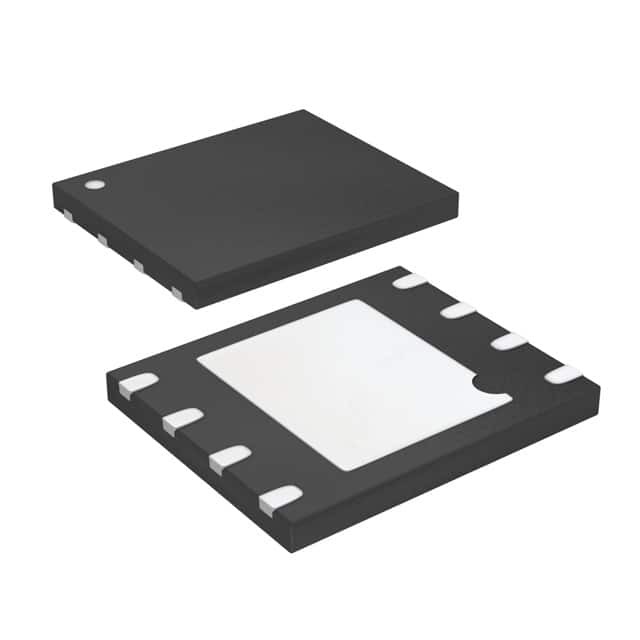AT24C128Y1-10YU-1.8-T
Basic Information Overview
- Category: Integrated Circuit (IC)
- Use: Non-volatile Electrically Erasable Programmable Read-Only Memory (EEPROM)
- Characteristics: Low-power, high-density memory storage
- Package: 8-pin SOIC (Small Outline Integrated Circuit)
- Essence: Data storage and retrieval in electronic devices
- Packaging/Quantity: Tape and Reel, 2500 units per reel
Specifications
- Memory Size: 128 kilobits (16 kilobytes)
- Operating Voltage: 1.7V to 3.6V
- Operating Temperature Range: -40°C to +85°C
- Write Cycle Endurance: 1 million cycles
- Data Retention: 100 years
- Interface: I2C (Inter-Integrated Circuit)
Detailed Pin Configuration
- A0: Chip Address Input
- A1: Chip Address Input
- A2: Chip Address Input
- GND: Ground
- SDA: Serial Data Input/Output
- SCL: Serial Clock Input
- WP: Write Protect Input
- VCC: Power Supply
Functional Features
- Non-volatile memory: Retains data even when power is removed
- Electrically erasable and programmable: Allows for flexible data modification
- High-density storage: Suitable for applications requiring large amounts of data
- Low-power consumption: Ideal for battery-powered devices
- I2C interface: Enables easy integration with other ICs
Advantages
- Compact package size
- Wide operating voltage range
- High endurance and long data retention
- Simple interfacing with other devices
- Low power consumption extends battery life
Disadvantages
- Limited storage capacity compared to other memory technologies
- Slower write and read speeds compared to volatile memory
Working Principles
The AT24C128Y1-10YU-1.8-T is based on EEPROM technology, which utilizes floating-gate transistors to store and retrieve data. When a write operation is performed, an electric charge is applied to the floating gate, altering its electrical characteristics. This allows for data to be stored in specific memory cells. During a read operation, the stored charge is measured, determining the logic state of each memory cell.
Detailed Application Field Plans
The AT24C128Y1-10YU-1.8-T is widely used in various electronic devices that require non-volatile memory storage. Some common application fields include: - Consumer electronics: Smartphones, tablets, digital cameras - Automotive: Engine control units, infotainment systems - Industrial: Data loggers, measurement instruments - Medical: Patient monitoring devices, medical equipment - Communication: Routers, modems, network switches
Detailed and Complete Alternative Models
- AT24C01A: 1 kilobit (128 bytes) EEPROM
- AT24C256C: 256 kilobit (32 kilobytes) EEPROM
- AT24CM02: 2 megabit (256 kilobytes) EEPROM
- AT24MAC602: 64 kilobit (8 kilobytes) Serial EEPROM with EUI-48 Node Identity
(Note: The above list is not exhaustive and serves as examples of alternative models.)
This entry provides an overview of the AT24C128Y1-10YU-1.8-T, including its basic information, specifications, pin configuration, functional features, advantages, disadvantages, working principles, application field plans, and alternative models. With its high-density storage, low-power consumption, and versatile applications, the AT24C128Y1-10YU-1.8-T is a reliable choice for non-volatile memory needs in various electronic devices.
قم بإدراج 10 أسئلة وإجابات شائعة تتعلق بتطبيق AT24C128Y1-10YU-1.8-T في الحلول التقنية
Sure! Here are 10 common questions and answers related to the application of AT24C128Y1-10YU-1.8-T in technical solutions:
Q1: What is the AT24C128Y1-10YU-1.8-T? A1: The AT24C128Y1-10YU-1.8-T is a specific model of EEPROM (Electrically Erasable Programmable Read-Only Memory) chip manufactured by Microchip Technology. It has a capacity of 128 kilobits (16 kilobytes) and operates at a voltage of 1.8V.
Q2: What are some common applications of the AT24C128Y1-10YU-1.8-T? A2: The AT24C128Y1-10YU-1.8-T is commonly used in various technical solutions such as data storage, configuration memory, security key storage, and parameter storage in electronic devices.
Q3: What is the maximum clock frequency supported by the AT24C128Y1-10YU-1.8-T? A3: The AT24C128Y1-10YU-1.8-T supports a maximum clock frequency of 1 MHz.
Q4: What is the operating temperature range of the AT24C128Y1-10YU-1.8-T? A4: The AT24C128Y1-10YU-1.8-T has an operating temperature range of -40°C to +85°C.
Q5: Can the AT24C128Y1-10YU-1.8-T be used with both 3.3V and 1.8V systems? A5: No, the AT24C128Y1-10YU-1.8-T is specifically designed to operate at a voltage of 1.8V and may not be compatible with 3.3V systems without level shifting.
Q6: What is the typical write cycle time for the AT24C128Y1-10YU-1.8-T? A6: The typical write cycle time for the AT24C128Y1-10YU-1.8-T is 5 milliseconds.
Q7: Can the AT24C128Y1-10YU-1.8-T be reprogrammed multiple times? A7: Yes, the AT24C128Y1-10YU-1.8-T is an EEPROM chip that can be electrically erased and reprogrammed multiple times.
Q8: Does the AT24C128Y1-10YU-1.8-T have any built-in security features? A8: No, the AT24C128Y1-10YU-1.8-T does not have any built-in security features. Additional security measures need to be implemented if required.
Q9: What is the package type of the AT24C128Y1-10YU-1.8-T? A9: The AT24C128Y1-10YU-1.8-T is available in a 8-lead ultra-thin small outline package (TSSOP).
Q10: Is the AT24C128Y1-10YU-1.8-T RoHS compliant? A10: Yes, the AT24C128Y1-10YU-1.8-T is RoHS (Restriction of Hazardous Substances) compliant, which means it meets the environmental standards set by the European Union.
Please note that these answers are based on general information about the AT24C128Y1-10YU-1.8-T and may vary depending on specific implementation requirements.


